Managing sleep apnea isn’t just about using a CPAP machine or following medical treatments—it’s also about making the right dietary choices. Although diet alone can't cure sleep apnea, what you eat can significantly impact the severity of your symptoms. Certain foods can worsen sleep apnea by promoting inflammation, weight gain, or excessive mucus production. On the other hand, other foods can help improve your sleep quality, reduce inflammation, and even support better breathing at night.
Foods to Avoid If You Have Sleep Apnea
While diet can’t fix sleep apnea entirely, avoiding certain foods is an effective strategy to minimize symptoms and support your overall health. Here are some foods you should consider limiting or eliminating:
Dairy Products
High-fat dairy products such as whole milk, heavy cream, and full-fat cheese can increase mucus production in your throat, making it harder to breathe at night. Dairy’s potential to thicken mucus can lead to more frequent airway obstructions, making your sleep apnea worse. It's advisable to avoid dairy two to three hours before bedtime to reduce the risk of excess mucus buildup。
Alcohol
Although alcohol might help you fall asleep faster, it can significantly disrupt your sleep patterns. Alcohol relaxes your muscles, including those in your throat, which can worsen snoring and obstructive sleep apnea symptoms. It also reduces the quality of sleep by interfering with REM sleep, making you feel less rested in the morning。
Processed Foods and Sugary Snacks
Processed foods, particularly those high in sugars and unhealthy fats, can trigger inflammation and contribute to weight gain—both of which are factors that can worsen sleep apnea. Foods like sugary snacks, fast food, and baked goods made from refined grains should be limited in your diet. These foods can lead to obesity, which further aggravates sleep apnea by increasing the risk of airway obstruction。
Fried and Fatty Foods
Foods high in trans fats and saturated fats, such as fried foods and fatty cuts of meat, can increase your cholesterol and contribute to inflammation. This not only affects your overall health but can exacerbate sleep apnea symptoms by causing swelling in the airways and contributing to the accumulation of fatty deposits that restrict airflow。
Carbonated Drinks and Sugary Beverages
Carbonated beverages, especially sodas, can be problematic for sleep apnea sufferers. The carbonation can lead to bloating and discomfort, making it harder to sleep. Additionally, sugary drinks or energy drinks containing caffeine can disturb your sleep cycle, keeping you up longer and worsening the quality of your rest。
Foods That Can Help Alleviate Sleep Apnea Symptoms
In addition to avoiding certain foods, there are several foods that may help improve your sleep apnea symptoms. These foods can reduce inflammation, enhance sleep quality, and support overall health。
Fruits and Vegetables
Fruits and vegetables are packed with nutrients and low in fat, making them an excellent choice for people with sleep apnea. They are rich in vitamins like vitamin C and vitamin E, which support lung function and improve blood flow, thereby reducing the chances of airway obstructions. Foods like berries, leafy greens, and bell peppers are especially beneficial。
Omega-3 Fatty Acids
Omega-3 fatty acids, found in foods like salmon, mackerel, and flaxseeds, have powerful anti-inflammatory properties. They may help reduce airway swelling and improve heart health, both of which are essential for managing sleep apnea. Omega-3s also help reduce oxidative stress caused by the low oxygen levels typical in sleep apnea, supporting your body’s overall ability to handle the condition。
Whole Grains
Whole grains such as oats, brown rice, and quinoa are rich in fiber, which helps maintain a healthy weight—a critical factor in managing sleep apnea. Whole grains are also less likely to spike your blood sugar, making them a healthier choice than refined grains. Their fiber content aids digestion and promotes a restful night's sleep。
Green Tea
Green tea contains antioxidants like polyphenols, which can help protect the body against inflammation. Studies have suggested that drinking green tea may reduce oxidative stress in individuals with sleep apnea. A cup of green tea before bed can also be a calming, caffeine-free alternative to sugary drinks。
Foods Rich in Melatonin
Melatonin is a hormone that regulates your sleep-wake cycle. Some foods naturally contain melatonin, including cherries, grapes, and tomatoes. Tart cherry juice, in particular, is often recommended for improving sleep quality. Incorporating these foods into your evening routine may help regulate your sleep cycle and improve the quality of your rest。
Low-Fat Dairy
If you enjoy dairy but need to avoid high-fat versions, opt for low-fat alternatives like skim milk, low-fat yogurt, and reduced-fat cheeses. These provide essential nutrients such as calcium and vitamin D without the excess fat that can contribute to mucus production and weight gain。
Lean Proteins
Lean proteins, such as turkey, chicken, and beans, are a great source of tryptophan, an amino acid that helps your body produce serotonin and melatonin—both of which support sleep. Including lean protein in your diet can help you feel fuller longer, reducing the risk of nighttime eating and contributing to overall weight management。
Frequently Asked Questions
What foods should I avoid if I have sleep apnea?
It's best to avoid foods that can cause inflammation, excess mucus production, and weight gain. These include dairy, fried and processed foods, alcohol, and sugary drinks。
Can a diet cure sleep apnea?
While a healthy diet cannot cure sleep apnea, it can help reduce symptoms and improve your overall quality of life. A combination of a balanced diet, regular exercise, and medical treatments like CPAP therapy is the most effective approach to managing sleep apnea。
Do bananas worsen sleep apnea?
Bananas are high in potassium, but they can also increase mucus production in some people, potentially making sleep apnea symptoms worse. If you notice that bananas affect your breathing或 cause congestion, you may want to avoid them before bedtime。
What foods promote better sleep for sleep apnea sufferers?
Fruits like cherries and grapes, foods high in Omega-3s like salmon, and whole grains such as oats can help promote better sleep. Foods rich in melatonin and tryptophan, such as turkey and low-fat dairy, may also support better rest。
Final Thoughts
Although a proper diet alone won't cure sleep apnea, it can certainly help alleviate symptoms. By avoiding certain trigger foods and incorporating more sleep-supportive foods into your diet, you can improve your quality of sleep and better manage your condition. Make dietary changes gradually, and consult your healthcare provider before making any significant adjustments to ensure they are safe and beneficial for you. Pairing a healthy diet with other treatments, such as CPAP therapy and weight management, is essential for optimal sleep apnea management。


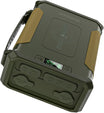
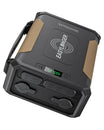

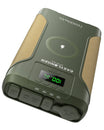
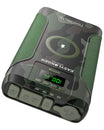
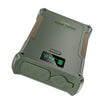
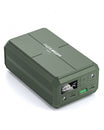
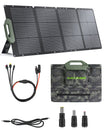






Leave a comment
All comments are moderated before being published.
This site is protected by hCaptcha and the hCaptcha Privacy Policy and Terms of Service apply.